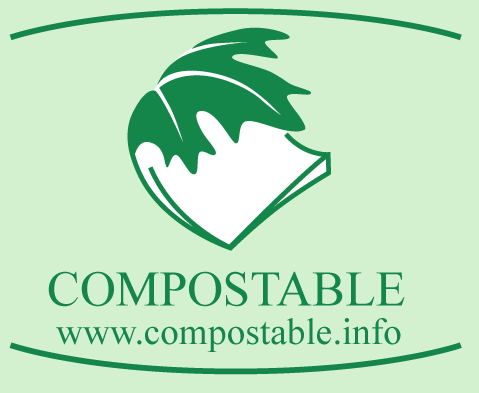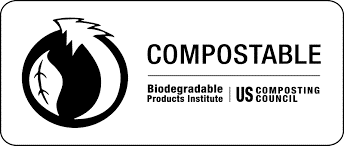Moving Toward Zero Waste in the Bow Valley
Events in the Bow Valley can create a lot of waste, which adds to their carbon footprint. This webpage is designed to help event organizers reduce waste and move toward zero waste events in the Bow Valley. Local authorities may require a waste management plan as part of your event permit. This guide will help you meet those requirements and support environmental sustainability.
What is ‘Zero Waste’ - and why is it important?
Zero waste means reducing what we send to landfills by reusing, recycling, composting, and choosing more sustainable materials. It reduces greenhouse gas emissions, keeps valuable resources in use, and aligns with local and global goals. The notion of supporting event organizers in a move towards zero waste is a priority at provincial, national, and international levels:
The United Nations Environment Program published “Towards Zero Waste: a catalyst for delivering the Sustainable Development Goals”, available online.
The Zero Waste International Alliance defines zero waste as ““The conservation of all resources by means of responsible production, consumption, reuse, and recovery of products, packaging, and materials without burning and with no discharges to land, water, or air that threaten the environment or human health.”
Closer to home, the Recycling Council of Alberta offers this definition of a closely related concept: a circular economy is "one in which an item is kept in use for as long as it can, delivering the highest value it can, for as long as it can.”
Note: Waste is one aspect of a sustainable event. Click here to learn more about other aspects.
What we Heard from you
In order to better inform the toolkit below, we conducted interviews with local event organizers to gain their perspectives and insights. Nicolas, an MBA student at the Haskayne School of Business, conducted interviews with five local event organizers to better understand the challenges, barriers, and opportunities they face when working toward zero waste events. The insights gathered from these conversations shaped practical strategies and recommendations in our toolkit, making it easier for organizers to plan eco-friendly events.
zero waste toolkit
Zero waste principles and priorities apply in the Bow Valley, given the potential to reduce the amount of garbage going to landfill, keep valuable resources circulating through the circular economy, and reduce the greenhouse gas emissions created when we create new materials or dispose of them in landfills.
This Toolkit provides event planners and organizers in the Bow Valley with the knowledge, strategies, and resources to host zero waste events. This is an evolving document that highlights best practices. As we continue to learn, we will update the toolkit.
local events leading the way toward zero waste
-
The Banff Farmers Market is an excellent example of an event that has fully integrated best practices with respect to reuse.
Prior to the 2023 summer season, Market Manager Rene Geber introduced a voluntary reusable food ware program to food vendors, featuring 100% reused dishes sourced from thrift stores! The program offered customers the option to choose reusable food ware when consuming food at the seating area provided at the market.
In 2024, the program was further integrated and scaled, requiring mandatory participation among vendors. As such, anyone purchasing food is asked “is it to stay or to go?” and, by default, reusable food ware is provided for those who stay. Dishes are washed by a market staff using a dishwashing trailer built by Rene.
Another amazing of example of reuse can be found at Krinkle Coffee, who both edible cups and Banff Borrows reusable cups as alternatives to single-use.
Huge kudos to the Banff Farmers Market for their commitment to support Banff’s goals to move toward zero waste, by reducing unnecessary single-use items and prioritizing reuse!
-
For the past three years, the Biosphere Institute of the Bow Valley has been coordinating Canmore Folk Music Festival’s Environment (Green) Team. The Green team is a team of 60 passionate volunteers that are responsible for handling compost, “green” education, recycling and waste management throughout the weekend. This year past year, we achieved a 91% waste diversion rate!
In future years, we are exploring the integration of reusables.
Green Team volunteer educates attendees at a waste sorting station at the Canmore Folk Festival in 2023.
REsources
Vendor Commitment Waste Management Template (Banff Lake Louise Tourism)
Canmore Nordic Centre Special Event Waste Management Tips (Alberta Parks & Canmore Nordic Centre Provincial Park)
Green Events Handbook (Rotary Club)
"Get Your Fill” Policy Template: Bring Your Own Reusables Template (Approved by an AHS representative)
FAQs
Why aren’t compostable cups or food ware the best option?
Municipal compost systems are designed to turn food scraps into usable, high-quality compost – NOT as a means to dispose of single-use take-away items. While fiber-based and plastic certified compostable food ware ARE accepted in both Banff and Canmore’s municipal waste streams, these materials do not add value to compost. Plastic compostable food ware simply breaks down into carbon dioxide and water in the composting process.
Another problem is when people put items in the wrong bins, this causes contamination, which can cause costly problems for waste operations. For instance, compostable plastic is commonly put into the recycling bin but it has to be pulled out on the sort line and thrown away as garbage.
Certified compostable food ware must have one of the two logos to be accepted in Banff and Canmore’s food waste bins. (Beware of materials labelled “biodegradable” or that do not have one of the two logos below - these items belong in the garbage.)
For a summary of the different issues associated with compostable food ware, see this research summary by Oregon DEQ.





